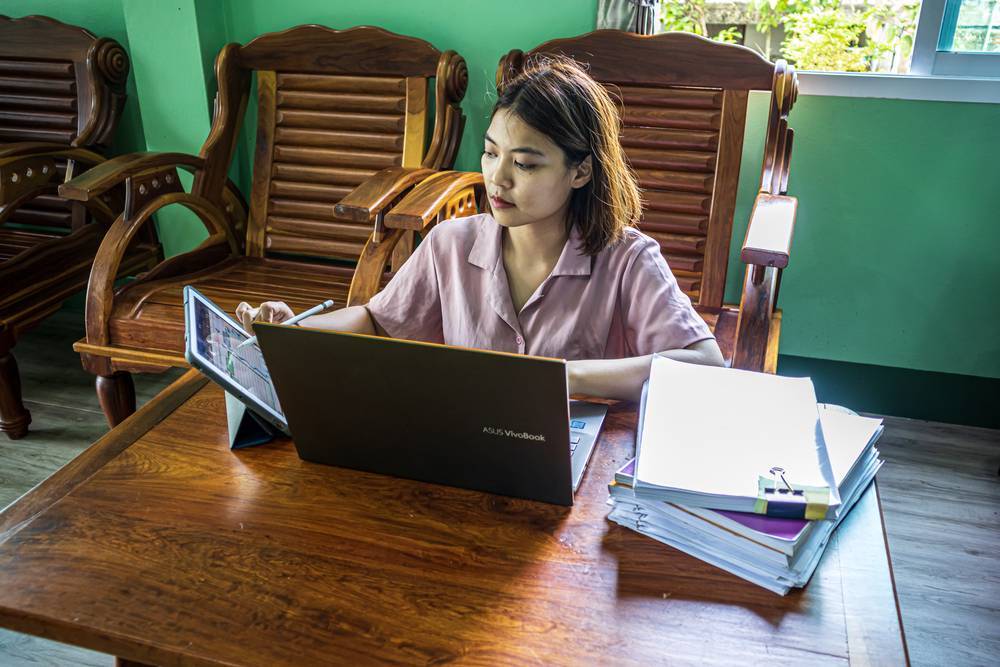According to studies, since the height of the pandemic, the average screen time for adults recorded a whopping 19 hours a day. This number is way far from the recommended 2 hours per day outside of work-related activities.
It is no doubt that there is an increasing number of individuals whose jobs require them to spend extended hours in front of a computer, particularly after the pandemic compelled us to shift to remote work. Simultaneously, most leisure time is also centred around a mix of streaming and social media platforms such as Facebook, Instagram, Netflix, and YouTube.
This excessive screen time has been associated with several negative consequences on our physical and mental health. Prolonged exposure to screens, especially in the form of blue light emitted by electronic devices, has been shown to disrupt our sleep patterns, leading to insomnia and daytime drowsiness. Additionally, prolonged sitting in front of screens can lead to poor posture, neck and back pain, and increased risk of obesity and other chronic health conditions.
To mitigate the negative effects of screen time, doctors recommend taking frequent breaks, practising good ergonomics, limiting screen time before bedtime, engage in physical activity and social interactions offline. They also recommend taking supplements that will protect the eyes from the harmful effects of excessive screen time.
Here are the top four supplements for eye protection:
1. Lutein and zeaxanthin
Lutein and zeaxanthin are carotenoids or pigments found in plants and in our retina. that have been shown to block the blue light from reaching the underlying structures in the retina, thereby reducing the risk of blue-light-causing diseases. It is linked with providing better vision, especially in dim light or where glare is a problem.
Studies have also shown that Lutein and zeaxanthin reduce the risk of age-related macular degeneration and improve visual function in people with early stages of the disease.
2. Astaxanthin
Astaxanthin is a powerful antioxidant that may offer protection against the harmful effects of excessive screen time on eye health. This naturally occurring carotenoid is found in certain types of algae, as well as in some seafood, such as salmon and shrimp. Astaxanthin has been shown to have anti-inflammatory properties, which may help protect against oxidative stress and inflammation in the eyes caused by blue light exposure.
Additionally, astaxanthin has been shown to improve visual function and reduce symptoms of eye fatigue and strain. While astaxanthin can be obtained from food sources, supplementation may be necessary to achieve optimal levels for eye health. Astaxanthin supplements are generally well-tolerated, but potential side effects may include upset stomach and interactions with certain medications.
3. Omega-3 fatty acids
Omega-3 fatty acids are essential nutrients that have been shown to offer some protection against the harmful effects of excessive screen time on eye health. These healthy fats are found in oily fish such as salmon, tuna, and sardines, as well as in certain nuts and seeds. Omega-3 fatty acids have been shown to improve tear production and reduce symptoms of dry eye, which can be exacerbated by prolonged screen use.
Additionally, omega-3 fatty acids have anti-inflammatory properties that may help protect against age-related macular degeneration, a common eye disease that can cause vision loss in older adults. While it’s always best to obtain nutrients from whole food sources, omega-3 fatty acid supplements can also be taken to support eye health.
4. Vitamin C
Vitamin C is a powerful antioxidant that can help protect the eyes from the harmful effects of excessive screen time. This essential nutrient is found in many fruits and vegetables, such as citrus fruits, berries, peppers, and broccoli. Vitamin C may help protect against oxidative stress caused by blue light exposure, which can lead to inflammation and damage to the cells in the eyes. Additionally, vitamin C is important for the health of blood vessels in the eyes, which can be affected by prolonged screen time.
While vitamin C supplements can be taken to support eye health, it’s always best to obtain nutrients from whole food sources whenever possible. However, if you are unable to get enough vitamin C from your diet, supplements can be an effective way to ensure that you are meeting your daily needs.
Takeaway
Protecting our eyes from the harmful effects of screen time is essential for maintaining good eye health. The four supplements mentioned above – lutein & zeaxanthin, astaxanthin, omega-3 fatty acids, and vitamin c — have been shown to improve visual function, reduce the risk of age-related macular degeneration, protect against oxidative stress and inflammation, and improve tear production.
However, it’s important to remember that supplements should be taken in conjunction with other measures to reduce screen time, such as taking frequent breaks and adjusting screen settings to reduce blue light exposure. We encourage readers to consider incorporating these supplements into their daily routine as part of a comprehensive approach to eye health. As with any supplement, it’s important to consult with a healthcare provider before starting any new supplement regimen to ensure safety and effectiveness. By taking care of our eyes, we can continue to enjoy the benefits of our digital world without compromising our vision.

